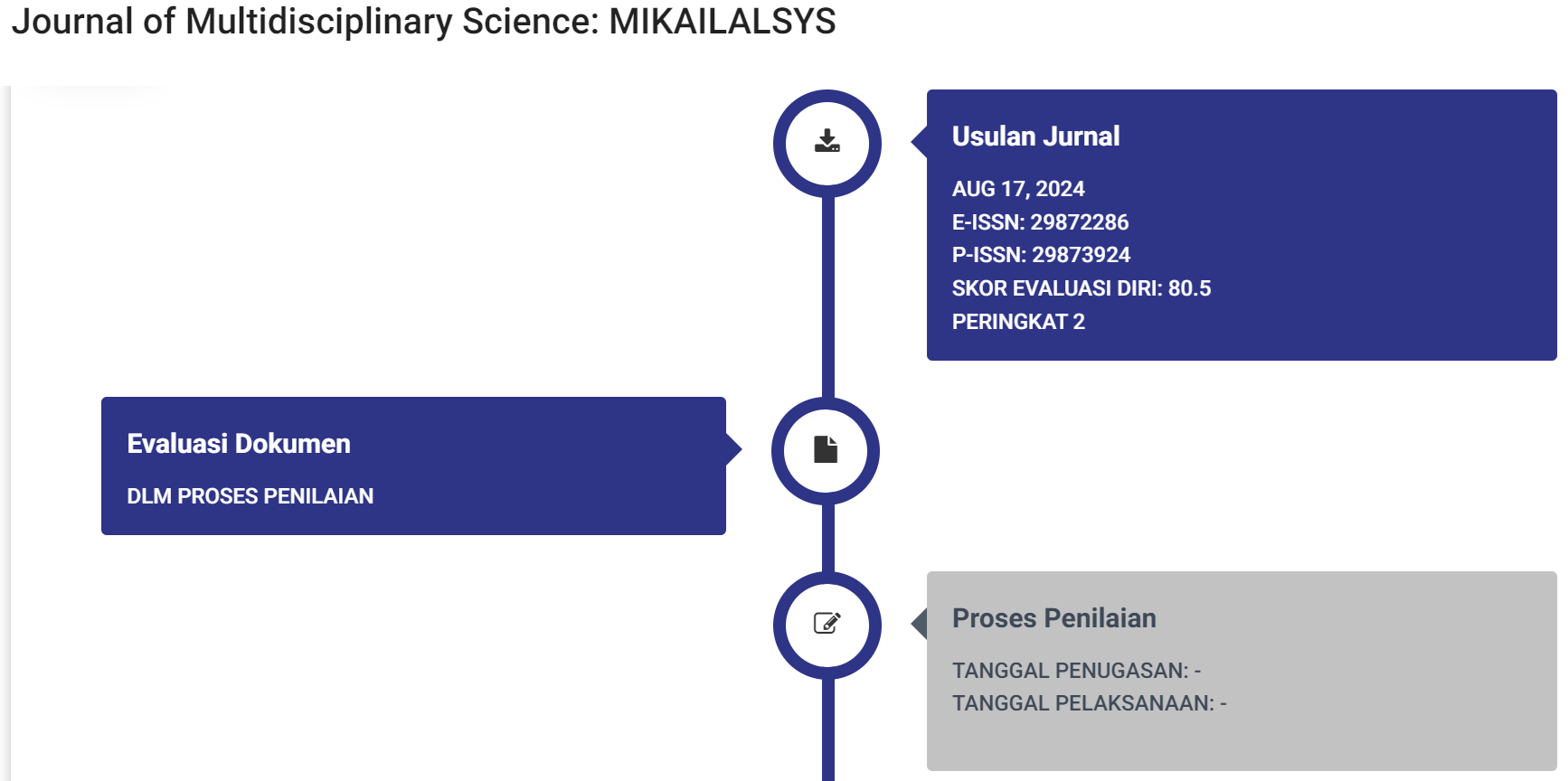Strategies of Achieving Work-Life Balance Among Married Female Journalists of Taraba State Broadcasting Service (TSBS) Jalingo
 Digital Object Identifier:
10.58578/mikailalsys.v2i3.3717
Digital Object Identifier:
10.58578/mikailalsys.v2i3.3717
Please do not hesitate to contact us if you would like to obtain more information about the submission process or if you have further questions.

Abstract
In order to reconcile their demanding professional and family commitments, married female journalists frequently confront particular difficulties. The strategies married female journalists use to strike a work-life balance, the effects of such strategies on the mechanisms to aid them overcome the challenges are examined in this study. This research uses in-depth interview, to examine the coping strategies, networks of support, and self-care routines these women employ to manage the demands of their careers and personal lives. The results show that they synergize with their colleagues to meet up, they also have to work ahead of time. It was also revealed that excessive demands and responsibilities lead to conflict leading to increased stress and anxiety due to conflicting demands and responsibilities. The study used Role Conflict Theory which proposes that individuals experience conflict when trying to fulfill multiple roles (e.g., work, family, personal), leading to stress, anxiety, and decreased performance. The theory holds that, excessive demands and responsibilities lead to conflict and that incompatible demands and expectations from different roles also lead to conflict. The study recommends that media stations should recognize and reward hardworking married female Journalists, implement gender sensitive policies like parental leave, childcare. Married Female Journalists should employ maids to relief them of domestic duties; and stations should provide creches for married Female Journalists to take care of their babies. The study contributes to our understanding of the complex interplay between work and family life among married female journalists, providing insights for promoting their well-being and career sustainability.




Citation Metrics:

Downloads

Authors retain copyright and grant the journal right of first publication with the work simultaneously licensed under a Creative Commons Attribution-NonCommercial-ShareAlike 4.0 International License that allows others to share the work with an acknowledgement of the work's authorship and initial publication in this journal.
References
Ani, O. I. (2004). Work-family role conflict and synergy: A study of female journalists in Nigeria. Unpublished master's thesis, University of Lagos, Nigeria.
Anyanwu, C. (2012). In Nigerian newspapers, women are seen, not heard: A content analysis of gender representation. Journal of African Media Studies, 4(1), 63-78.
Bates, W. B. (2015). Women journalists and harassment: A study of gender-based violence in the newsroom. Journal of Interpersonal Violence, 30(15), 2641-2661.
Bresslauer, E. (2022). Discrimination against women journalists in Nigeria: A critical analysis. Journal of African Media Studies, 14(1), 1-15.
Chambers, D., Kapoor, C. A., Newmen, P., Cocharn, J. & Brown, B. T. (2004). Women and journalism. Routledge.
Clerk, G., Mba, C., & Effah, P. (2004). Challenges facing female Journalists in Ghana. Journal of Media and Communication, 1(1), 34-50.
Committee to Protect Journalists. (2019). The safety of female journalists: A global issue.
Delery, J. E., & Doty, D. H. (2006). Modes of theorizing in strategic human resource management: Tests of universalistic, contingency, and configurational performance predictions. Journal of Management, 32(6), 863-888.
Desmond, O., Okocha, F., & Blessing, E. (2022). Assessing the challenges confronting female journalists in Plateau State, Nigeria. Journal of Media and Communication Studies, 14(2), 1-15.
Dwifatma, A. (2021). Barriers to career advancement of female journalists in Nigeria. Journal of African Media Studies, 13(3), 287-302.
Fapohunda, T. M. (2014). A comparative study of work-family balance of female journalists and nurses. International Journal of Research in Humanities and Social Studies, 1 (1) 77-82.
Gargi, A., & Ashok, K. (2021). Study of work-life balance among working women in the IT Sector. International Journal of Human Resource Management, 32(10), 2234-2252.
Gray, J., & Hassell, A. (2014). Women in journalism: Challenges and opportunities. Journal of Communication Studies, 8(1), 56-75.
Krejcie, R. V., & Morgan, D. W. (1970). Determining sample size for research activities. Educational and Psychological Measurement, 30(3), 607-610.
Lachover, Einat. (2005). The impact of feminist theory on qualitative research. Qualitative Social Work, 4(1), 55-75.
Nwafor, C. E. (2013). Gender and journalism in Nigeria. African Journal of Communication, 6(2), 123-140.
Omar, M. (2010). The impact of leadership on organizational performance. Journal of Management Research, 2(2), 1-12.
Oyinade, A. A., Daramola, I. O., & Lamidi, T. O. (2013). An assessment of work-life balance among female journalists in Nigeria. Journal of Media and Communication, 5(2), 1-15.
Priyanka, Singh, K., & Kumar, V. (2021). Exploring the impact of social media on mental health. Journal of Social Media Studies, 7(1), 12-25.
Ronderos, T. (2012). Women journalists in the eye of the storm: Violence and harassment in Latin America. International Journal of Media and Cultural Politics, 8(2), 147-162.
Sanusi, A. A., & Adelabu, O. A. (2015). Work-life balance and job satisfaction among female journalists in Nigeria. Journal of Media Studies, 10(2), 123-145.

























